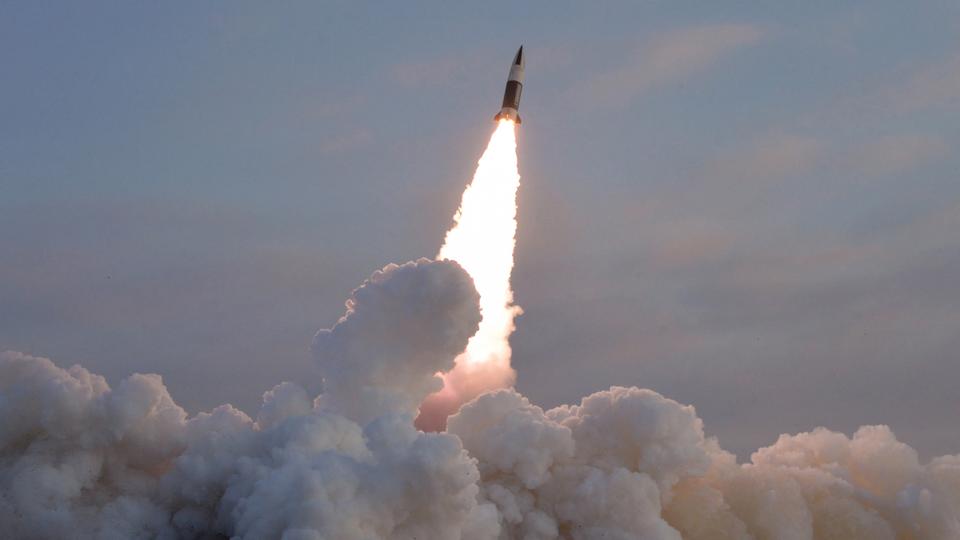North Korea has fired two suspected ballistic missiles, its sixth weapons test this month in one of the most intense spates of launches on record that has delivered an emphatic rejection of Washington’s offers for talks on its nuclear programme.
Seoul’s Joint Chiefs of Staff said on Thursday it detected two suspected short-range ballistic missiles fired from the Hamhung city area towards the East Sea from around 2300 GMT (8AM local).
“The projectiles flew 190 kilometres (118 miles) at an altitude of 20km,” they said.
Pyongyang fired two suspected cruise missiles on Tuesday, and tested ballistic missiles on January 14 and 17. It also fired what it said were hypersonic missiles on January 5 and 11.
“I believe, if we include the two cruise missiles, this is now the most recorded North Korean missile launches in any month ever,” analyst Ankit Panda wrote on Twitter.
The distances and altitude of the Thursday tests indicate the launches are part of North Korea’s regular military training, said Hong Min, a senior researcher at the Korea Institute for National Unification in Seoul.
Such tests are “aimed at thwarting the deployment of US-South Korea strategic maritime assets such as an aircraft fleet,” he said.
The US government “condemns” the launch of two ballistic missiles, a State Department spokesperson said on Wednesday, calling the tests a violation of multiple United Nations Security Council resolutions.
Doubling down
Pyongyang has not fired this many missiles in a calendar month in decades, according to data compiled by the Center for Strategic and International Studies, a Washington-based think tank.
The last time they came close was in 2019, after high-profile negotiations between leader Kim Jong-un and then-United States president Donald Trump collapsed.
With US talks stalled since then, Pyongyang has doubled down on Kim’s pledges of military modernisation, embarking on a string of sanctions-busting launches this month, including hypersonic missiles.
Pyongyang has repeatedly defended its weapons programs as part of the “legitimate exercise of the right to self-defence”.
It has not tested intercontinental ballistic missiles or nukes since 2017, but last week hinted it could restart such launches, blaming US “hostile” policy for forcing its hand.
The diplomatic cost to Kim of the recent tests is minimal due to strong backing from Beijing, which has blocked efforts to impose new sanctions over short-range missile tests.


Comment here